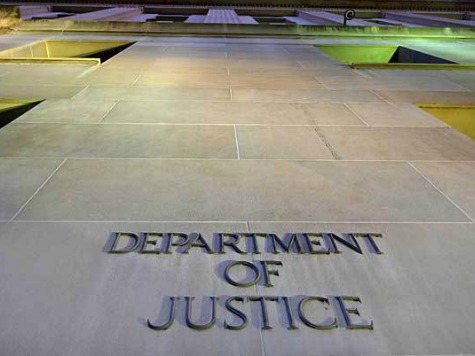
An expert witness paid with tax dollars by the United States Department of Justice testified that North Carolina election laws impact black voters disproportionately and that blacks are less sophisticated.
Charles Stewart, a political scientist was retained by the Justice Department to testify against voter identification laws and other election integrity measures. His testimony argued that ending same day voter registration and requiring voters to vote in the precinct where they live constitutes racial discrimination.
When asked if terminating the ability to register to vote on the day that someone casts a ballot impacts blacks disproportionately, Stewart testified in court that it did. Stewart:
It’s also the case that — well, yes, so it would, empirically more likely affect African Americans. Also, understanding within political science, that people who register to vote the closer and closer one gets to Election Day tend to be less sophisticated voters, tend to be less educated voters, tend to be voters who are less attuned to public affairs.That also tells me from the literature of political science that there are likely to be people who will end up not registering and not voting. People who correspond to those factors tend to be African Americans, and, therefore, that’s another vehicle through which African Americans would be disproportionately affected by this law.
Blacks tend to be less sophisticated, less educated, and lower information voters, according to a taxpayer-funded Justice Department expert. Experts for the Voting Section of the United States routinely make tens of thousands of dollars for this sort of expert testimony, if not hundreds of thousands of dollars.
When asked if ending the ability to register to vote at the same time one casts a ballot would harm blacks more, Stewart testified:
As I said before, this is particularly a mechanism and a time that’s well situated for less sophisticated voters, and, therefore, it’s less likely to imagine that these voters would — can figure out or would avail themselves of other forms of registering and voting.
The complete transcript of Stewart’s testimony can be found here.
The National Association for the Advancement of Colored People (NAACP) also called an expert in the same case. Dr. Barry Burden is a political scientist at the University of Wisconsin. He was also used in the challenges to Wisconsin’s voter ID law by those opposing the statute.
The founding charter of the NAACP said the organization was created to “promote equality of rights and to eradicate caste or race prejudice among the citizens of the United States;…to secure…complete equality before law.” In a courtroom in 2014, an expert paid by the same organization testified that blacks are not able to figure out how to register to vote the same way whites do, and that they pay less attention to public affairs.
Stewart was also asked, “and you are saying that unsophisticated voters have more trouble figuring out what the rules and regulations are for voting. Is that your testimony?
Stewart: People who have lower education and who have less – that pay less attention to public affairs will have greater problems figuring out how to vote, yes.
Q. Okay. So your testimony is that African Americans are less sophisticated than white voters; is that right?
Stewart: My understanding is that African Americans have lower levels of education in North Carolina, and I know from the public opinion work that African Americans report that they paid less attention to public affairs on average than white voters do probably because of the differences the education.
Q. Do you think they are less able to figure out what the rules are for when you have to register to vote and when you have to go vote?
Stewart: The ability to figure these things out is related to one’s education. As I said, that ability –those average abilities are due to differences in things like education.
Q. Okay. So then you are saying that African American voters have less ability to figure out what the rules are for voting?
Stewart: I said African Americans have less education, which leads to an ability to navigate the rules of the game.
These two experts have been retained by the Justice Department and NAACP to help their lawsuit against North Carolina voter ID, the curtailment of early voting and the new requirement in North Carolina that voters cast a ballot in the precinct where they live.
A federal court ruled that the election law changes do not discriminate against blacks, but the Fourth Circuit Court of Appeals reversed. The Supreme Court of the United States stayed the ruling by the appeals court, and thus the election law changes will be in place for the November elections.

COMMENTS
Please let us know if you're having issues with commenting.